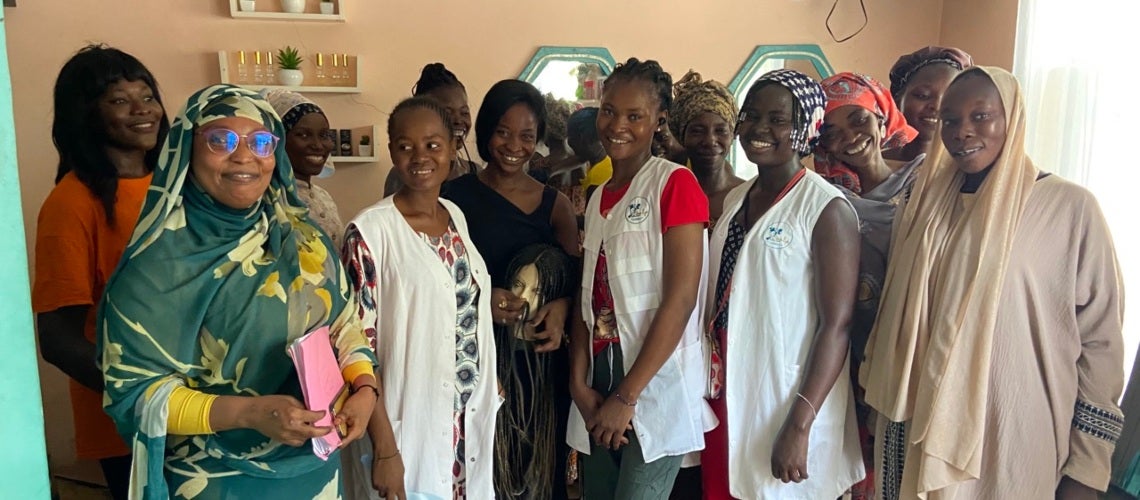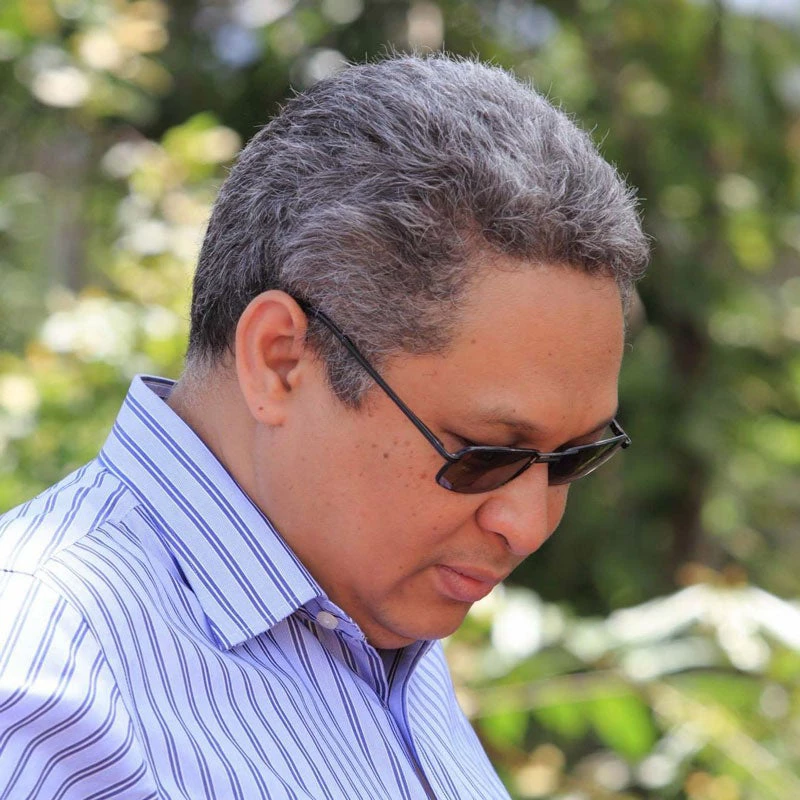 Halimé Abdoulaye surrounded by her trainees at Lys Spa.
Halimé Abdoulaye surrounded by her trainees at Lys Spa.
Recently, in N'Djamena, Chad, I met Grâce Yanlom Ndôtam, a 22-year-old single mother, and Lauriane Kaïnoudji, 24, an orphan raising her daughter. They are part of a group training in hairstyling, beauty, and massage at Lys Spa. A group of us from the World Bank visited this beauty salon as part of a regular implementation support mission of an IDA-funded skills development and employability project. We heard stories of adversity and resilience—and of the power of education to change lives.
Halimé Abdoulaye, owner of Lys Spa, explained to me that most of the apprentices’ lives have been marked by trial. Orphanhood, widowhood, or single motherhood—circumstances which led them to drop out of school and limit their job prospects.
According to a recent World Bank survey, Chad's education system faces many challenges, including a lack of good infrastructure and resources, and teacher absenteeism. The 2019 UNICEF Multiple Indicator Cluster Survey of women and children found that around 1.6 million primary-school-age children were out of school, and for those who attend, they performed poorly. As a consequence, the learning poverty in Chad is among the highest in the world at 94 percent. It means that less than one out of 10 children can read a simple text at the age 10.
Stakeholders and beneficiaries share their views on the benefits of a youth apprenticeship program in Chad. Copyright: Erick Rabemananoro, World Bank Group
Filling gaps in experience and knowledge
With support from the World Bank, the government is seeking to improve opportunities for youth through a program that offers free apprenticeship training to Chadian youths. Currently 807 apprentices are enrolled in free apprenticeship training program across various fields including hairdressing, beauty, or tailoring--as pursued by Grâce, Lauriane and Mama--but also electricity, hotel services, mechanics and carpentry.
Immensely popular, 8,000 young Chadians registered within two days of the program’s announcement on the radio. Two-thirds of the trainees are young men, like Mama Mahamat, an 18-year-old from a rural area 45 kilometers away from N’Djamena. The instruction he received at a Quranic school didn't equip him with basic numeracy and literacy skills and even less the skills for the job market. In his village, the absence of tailoring services presents an exceptional opportunity for him to establish and grow his own business after he completes his training.
The training blends theoretical knowledge with practical experience through a network of over 250 local entrepreneurs like Radjé Dingaogolo. He is hosting 15 trainees, most of them women, at his Youdoudou hotel and told me that he views the program as a beneficial investment. He intends to expand his business and recognizes that these trainees will form his future skilled workforce. This initiative is directly addressing multiple issues in Chad, including providing employment opportunities, educational access, and promoting gender equality.
Apprenticeships offer a lifeline
Beyond the statistics, the impact of this program is profoundly human—something we witnessed in the positive, forward-looking attitude of the participants. It offers a lifeline to young individuals who, due to various circumstances, dropped out or were unable to attend school. Lauriane shared with me that the program has instilled newfound confidence in her about her future. She now harbors ambitions of opening her own beauty salon after completing the training, illustrating the transformative potential of this initiative to empower individuals, showcasing the potential of vocational training as a safety net.
Vocational training can truly be a life-changer. Spread the word by sharing this story, and advocate for vocational training in your own countries. It can empower individuals like Grâce, Lauriane and Mama to shape their own futures.
A special thanks to Zacharie Ngueng and Harisoa Rasolonjatovo for making this reportage possible.
To receive weekly articles, sign-up here


Join the Conversation